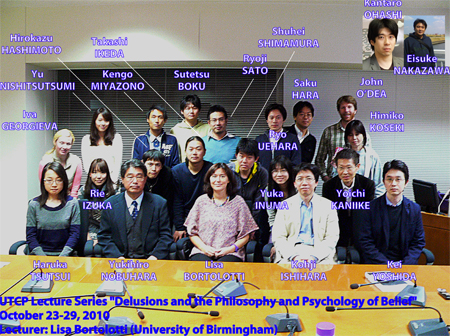[Guest Blog and Report] Lisa Bortolotti Lecture Series
We held a series of lectures by Dr. Lisa Bortolotti (University of Birmingham) for five days from the 23rd to 29th of October 2010.
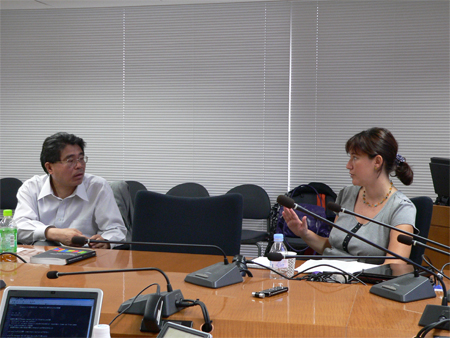
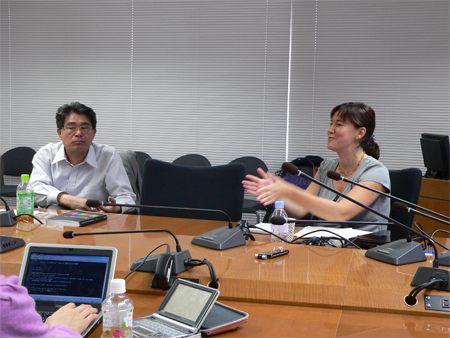
The title of her lecture series was "Delusions and the Philosophy and Psychology of Belief" [Program]. She examined the relation between delusion and philosophy of mind. We had a lot of stimulating experiences. We would like to thank Dr. Bortolotti for her stimulating lectures on the nature of delusion and philosophy of mind.
Dr. Bortolotti wrote a blog article about her lecture series, which is pasted below.
(Eisuke Nakazawa)
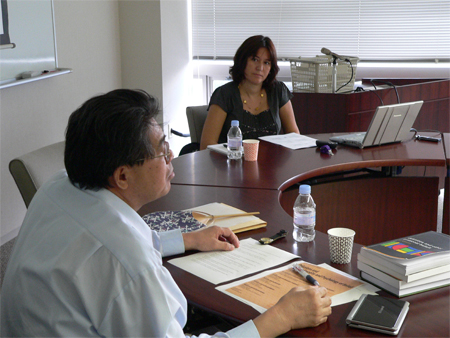
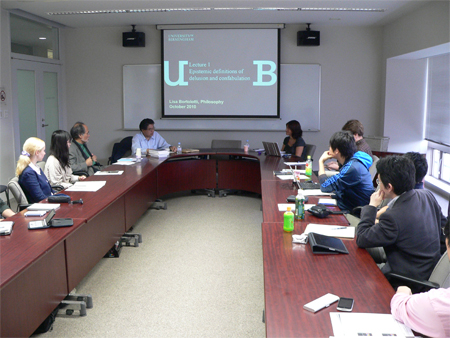
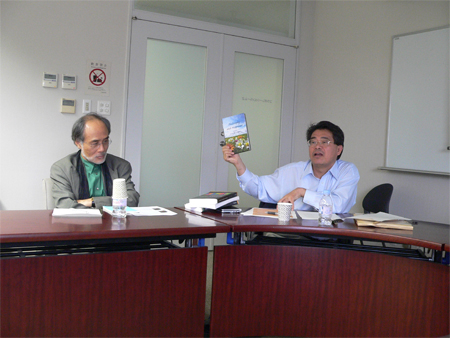
****
When I received an email from Professor Nobuhara inviting me to deliver a series of lectures at UTCP, I was delighted, because I knew that the Centre promoted the type of “applied philosophy” I like (e.g., empirically informed philosophy of mind and neuroethics), and because I treasured the opportunity to spend some time in one of my favourite cities in the whole world. In Tokyo, I soon realised, just after the first lecture, that this would be a fantastic experience from both an academic and personal point of view.
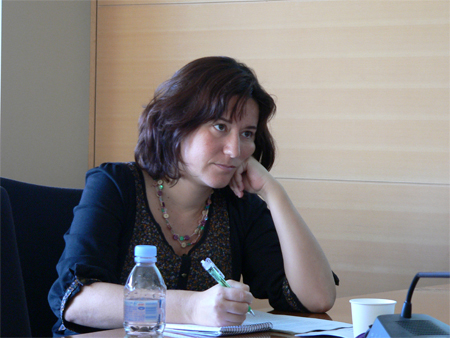
The series of lectures was entitled “Delusions and The Philosophy and Psychology of Belief”. In each of the first three meetings I presented an argument that I developed in the monograph on delusions I published in 2009 (“Delusions and Other Irrational Beliefs”, OUP) and some implications to be drawn from it. In the last two lectures I presented more recently developed arguments, about the relationship between delusions and action, and about whether people with delusions can be held responsible for the actions that are motivated by their delusions. After one hour and a bit of me talking, one or two detailed commentaries followed. I was then given a chance to respond, and a QA session took place.
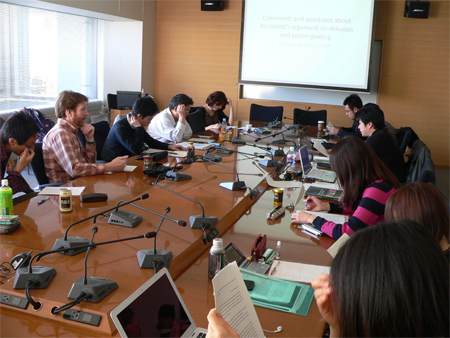
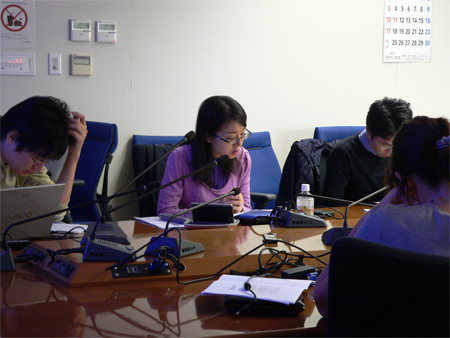
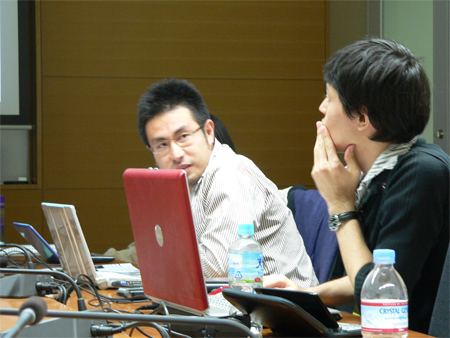
It is always a pleasure to see people interested in your work, but the bright graduate students and post-doctoral researchers at UTCP exceeded my expectations. They were very knowledgeable about the topic (philosophical accounts of delusions and implications for beliefs) and provided very helpful feedback in the form of commentaries and questions. What struck me about all the commentaries, which ranged from the psychology of belief to the nature of moral responsibility, is that they were original. The authors didn’t just make comments and objections to my arguments, but put forward novel solutions to serious philosophical problems – and it was even more impressive because they only had 15 minutes to do so! They also raised questions emerging from examples I had never considered before, forcing me to think hard on the spot. As a result of this productive exchange, I started reconsidering many issues that I had set aside after completing my project on delusions, I was inspired to write about further potential implications of my view, and to clarify my position where it had been so effectively challenged.
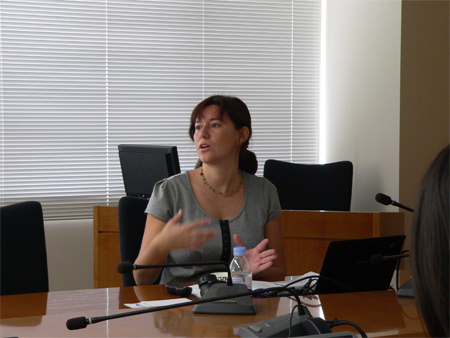
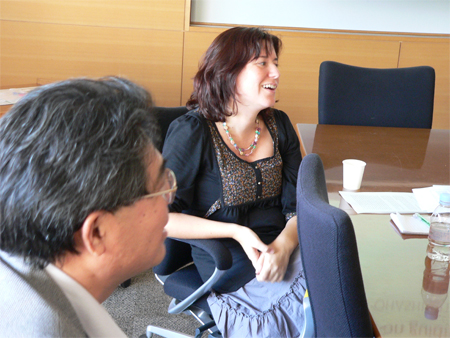
UTCP philosophers were also incredibly friendly and hospitable, taking me to dinner in very exciting places which would have been difficult for me to visit on my own due to my total incompetence in the Japanese language (something I hope to remedy in the future). I loved the range of seasonal dishes I had the fortune to taste (among which oden and soba), and, above all, the wonderful company. Philosophical issues crept in the conversation, predictably, but we also talked about many other things, and I feel I got really close to some of the people I met. (I was also helpfully advised about what to do in my spare time in Tokyo, and warned about a looming typhoon, which was very considerate of my hosts, as I had been ignoring the news since my arrival in Tokyo, too absorbed in an intensive programme of philosophy and good food).
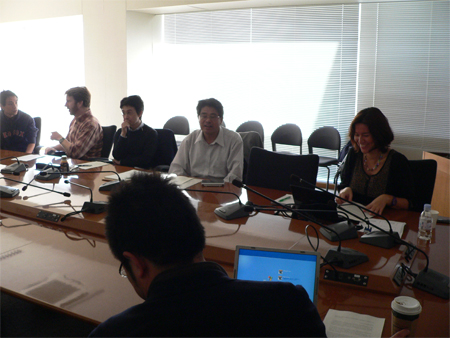
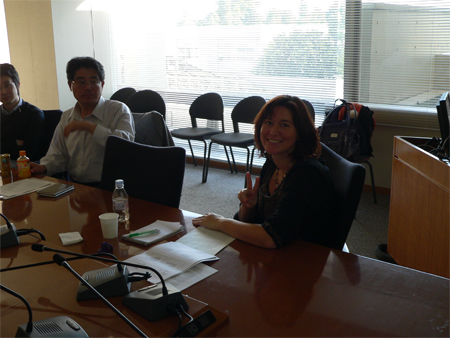
I found myself envying the students working at UTCP, under the leadership and care of Professor Nobuhara. They looked like a tight group, as they were cooperative and helpful to each other, and clearly had the competence, motivation, and energy to contribute substantially to the advancement of “applied philosophy” and to the profession in general. I hope to meet them again all very soon, and I am grateful to Professor Nobuhara for the opportunity to be part of the Centre for ten days or so, and to Mr Nakazawa for organising my stay and my lectures so impeccably. I have been back only a few days, and I miss UTCP already!
(Lisa Bortolotti)
